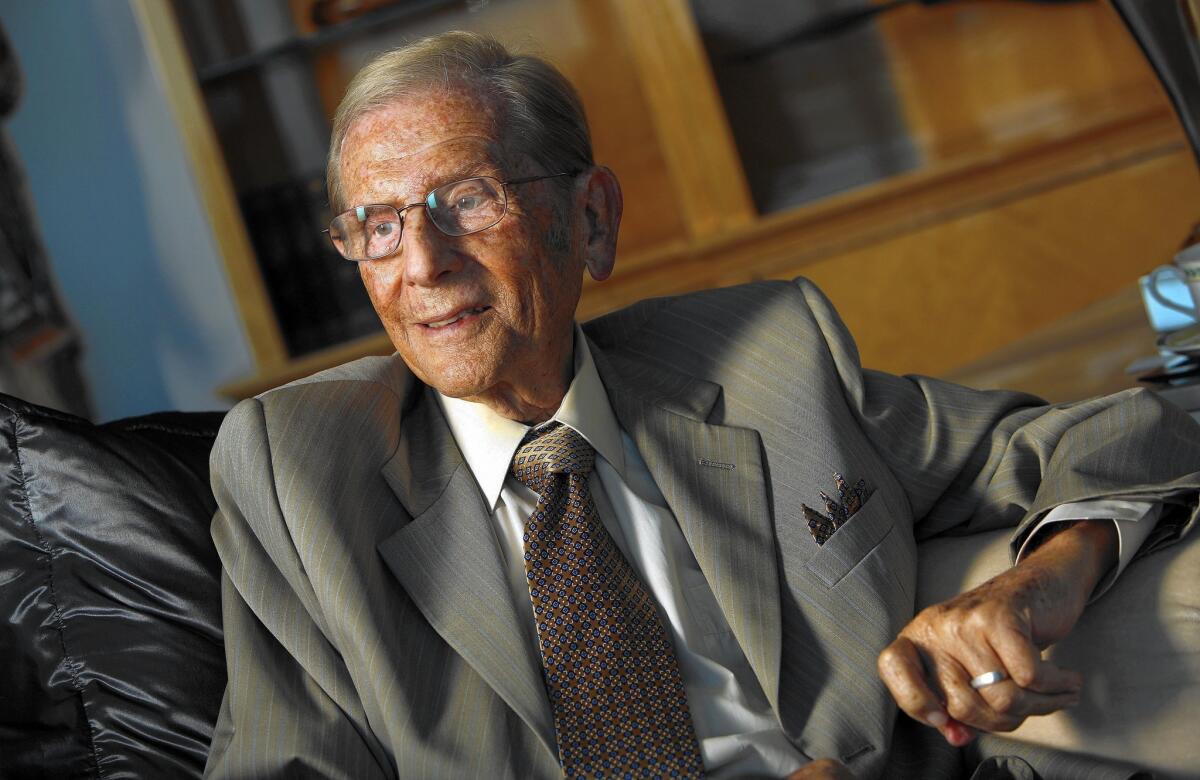Report: Struggling drugmaker MannKind looking for a buyer

Alfred Mann-backed MannKind Corp. might be seeking a buyer. The company is running out of cash and its lone product, inhalable insulin Afrezza, hasnât sold well since hitting the market last year.
Struggling drug developer MannKind Corp., the maker of an inhalable insulin treatment thatâs so far posted disappointing sales, might be looking for a buyer.
News that MannKind is working with investment bankers on strategic options â including a possible sale â was reported Tuesday by Reuters, citing unnamed sources.
âI canât comment on anything like that,â said Matt Pfeffer, MannKindâs chief executive and chief financial officer. âThe attorneys are quite emphatic about it.â
The company recently lost the backing of French pharmaceutical giant Sanofi, which had agreed to market and distribute MannKindâs only product, inhalable insulin Afrezza. MannKind is a drug developer with no sales or distribution operations.
Founded by billionaire Alfred Mann, the Valencia company had bet big on Afrezza, which took more than a decade and nearly $2 billion to develop. Analysts once thought it could be a blockbuster drug that would generate billions in annual sales, but Afrezza failed to gain traction after hitting the market last February. Sanofi and MannKind sold just $5.5 million of the drug through September.
On top of weak sales and the loss of Sanofi as a partner, MannKind has had other troubles. The companyâs chief executive resigned in November, leaving Mann, 90, to step in temporarily.
A replacement had to back out because of a contract dispute with a previous employer. Now, the company is being led by Pfeffer, the companyâs longtime finance chief.
Pfeffer has acknowledged that MannKind has enough cash to make it only into the second half of this year.
MannKind shares jumped 22% to close at 92 cents Tuesday, though much of the dayâs gain came before Reuters published its report.
Shares traded for more than $10 immediately following Afrezzaâs FDA approval in 2014, but theyâve lost more than 90% of their value since then. Theyâve traded for less than $1 since Sanofi scrapped its deal with MannKind.
If the company is for sale, that would be an apparent reversal. The day MannKind announced Sanofi was pulling out, Pfeffer said the company would carry on.
âI speak today with resolve to say that this is not the end of the line for Afrezza or for MannKind by any means,â he said on a Jan. 5 conference call.
In an interview with The Times this week, Pfeffer said MannKind is looking for new sales and distribution partners, rethinking the marketing strategy for Afrezza, working to get the drug approved for sale in markets outside of the United States, continuing to develop other inhalable drugs and licensing its technology to other drug developers.
He gave no indication that the company was for sale.
Keith Markey, an analyst at Griffin Securities who owns MannKind stock, said he doesnât believe MannKind is looking for a buyer.
âIt was only two weeks ago that Matt Pfeffer laid out the companyâs strategy. I canât imagine theyâd suddenly change their direction,â he said.
Lloyd Greif, chief executive of downtown L.A. investment bank Greif & Co., said all the activity that Pfeffer mentioned suggests the company is scrambling to stay afloat â and that it is likely considering any option, including a sale, that would stave off bankruptcy.
âIt conveys a sense of urgency. No question the companyâs back is up against the wall and theyâre going to look at any and all reasonable options,â Greif said.
Ahmed Enany, chief executive of trade group Southern California Biomedical Council, said any company in MannKindâs situation would consider a transaction. He also noted that choosing its finance chief to lead the company âmade sense.â
âPutting him at the helm might help the company explore options, including a sale,â Enany said.
Although Afrezza has been a flop so far, MannKind has other assets that could be attractive to a buyer. The companyâs inhalable drug technology, Technosphere, could be used to develop inhalable versions of other drugs.
See more of our top stories on Facebook >>
Pfeffer said MannKind is developing an inhalable epinephrine â the drug used to treat anaphylaxis, a potentially deadly allergic reaction â as well as an inhalable version of a drug used to treat nausea in chemotherapy patients. Last week, the company agreed to license Technosphere to a Seattle company that plans to use it with other drugs.
A buyer would have to take on the companyâs more than $194 million in outstanding debt. And it would have to spend much more to develop more inhalable drugs, get them approved by the FDA and get them to market â a process that could take years if it happens at all.
âThe question mark revolves around the technology. Is it commercially viable?â Greif said. âAny buyer coming into this situation is going to have to make a huge investment to bring this product to market. Thereâs lots of heavy lifting left before you can declare success here.â
Twitter: @jrkoren
MORE FROM BUSINESS
Lazarus: When collectors call, demand proof of your debt
Appleâs growth hits a wall: The iPhone makerâs sales show weakness
Drug kingpin âEl Chapoâ creates a rush for L.A. clothing firmâs shirts
More to Read
Inside the business of entertainment
The Wide Shot brings you news, analysis and insights on everything from streaming wars to production â and what it all means for the future.
You may occasionally receive promotional content from the Los Angeles Times.











